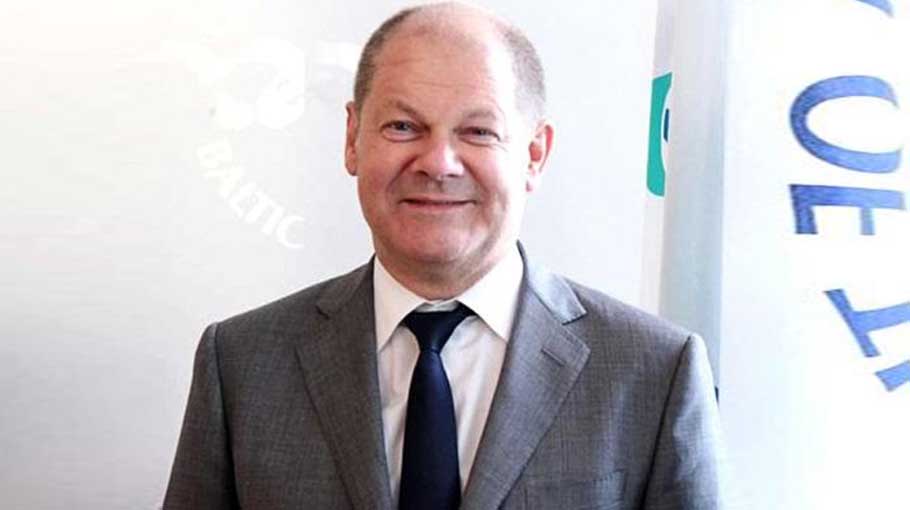New German Chancellor Olaf Scholz deserves a chance
Incoming government taking over during the country’s worst coronavirus outbreak yet

Olaf Scholz clinched the deal of his life this week. Less than two months after leading his Social Democrats to a narrow victory at the polls, Germany’s outgoing finance minister got himself the coalition he needs to be sworn in as chancellor, probably within two weeks. The 16-year era of Angela Merkel is over. The Scholz years are about to begin.
This success is a well-deserved vindication. Only two years ago, his career seemed all but dead when Scholz, a technocrat by temperament, lost out to leftist firebrands in a campaign to lead his own party. When the SPD later made him its candidate for chancellor, he seemed to stand no chance. But then his rivals spontaneously self-destructed and things fell into place. And here he is.
His government will be an experiment for Germany. For the first time at the federal level, the Social Democrats — who have produced only three of post-war Germany’s eight chancellors — will govern with both the environmentalist Greens and the pro-business Free Democrats. The Social Democrats descend from 19th-century Marxism, the Greens from the 1970s counterculture and the Free Democrats in their current incarnation from neoliberalism. Getting this trio to sing in tune won’t be easy.
Scholz’s goal in this situation was not to force his own party’s campaign manifesto down the two partners’ throats — which is just as well, since he probably doesn’t care that much about it anyway. Instead, it was to ensure that each party can claim enough of a victory to get its base to ratify the coalition deal. And that Scholz appears to have done.
Here’s my tentative synopsis of the roles each party will play.
The SPD will get the chancellery, of course, and some other portfolios — no cabinet positions have been confirmed yet. Overall, the party and Scholz will try to play the role the Christian Democrats and Merkel used to have, as unideological but competent administrators in times of crisis.
To keep his party’s left wing happy, Scholz will quickly push through his biggest campaign promise: A hike in the minimum wage from 9.60 euros ($10.76) to 12. The party will also try to get more housing built. It will use any semblance of success in these endeavours to loudly proclaim itself the defender of the working classes and social justice. Then it’ll sit back and try hard just to keep the other two parties from fighting.
The Greens had to concede a lot in the negotiations but salvaged their perceived core competence. Robert Habeck, one of the two party leaders, appears odds-on to become a “super-minister” in charge of several portfolios, from the economy to energy and the climate. As agreed in the coalition contract, he’ll try to boost the share of solar and wind generation in the electricity grid, to exit coal power by 2030 instead of 2038 and to phase out cars with combustion engines around the same time. Whether they make it or break it, the Greens at last own “green.”
Read More: The lesson Moby-Dick has for a warming world
They’ll also take the foreign ministry, which probably goes to co-leader Annalena Baerbock. She cut a hapless figure as the Green candidate for chancellor, but she could make a fine chief diplomat. She and her party have been bluntest in calling out China and Russia on human rights, and most enthusiastic about strengthening the European Union.
The Free Democrats have the most to boast about. The smallest of the three partners, the FDP has, nonetheless, sold itself at a high price. It has blocked the SPD’s and Greens’ demands for a wealth tax and higher income taxes. It’s also stood up for the principle of balanced budgets at home and fiscal restraint in the EU. The party’s boss, Christian Lindner, even appears to have snatched the finance ministry for himself from the Greens, who should have had dibs. For better or worse, he too now owns his brand category and will be judged accordingly.
All three, of course, will do their best to emphasise whatever they can find in common. That could be the legalisation of cannabis — popular with young voters, though no longer the defining issue of our times — or the much more urgent digital transformation of an economy that remains surprisingly paper-based.
The spoiler is Covid-19, of course. It wasn’t much of an issue during the campaign because the pandemic seemed under control in the summer. The Free Democrats, in particular, promised to swiftly restore people’s freedoms. Now, however, Germany, like much of Europe, is in the throes of its worst outbreak yet — and in need of new restrictions.
To make matters worse, Merkel, as caretaker chancellor without real power during the interregnum, tried to enlist Scholz in taking more drastic measures against the surge in infections. But he rebuffed her, perhaps because he was preoccupied with the coalition talks. According to a new survey by Forsa, a polling institute, Scholz’s approval ratings have already dropped, to only about 50%.
And Covid-19 is only one crisis waiting to be managed. In the east, Russia has massed its troops near the Ukrainian border and Belarus has manufactured a new migrant crisis. Inflation is spiking, gas reserves are low, supply chains are clogged, the economy is sickly.
What Scholz and his new partners may discover sooner that they’d hoped is what Merkel experienced in all four of her terms: You might start out thinking you’ll govern and shape, but you’ll end being governed and shaped by crises you didn’t even know you’d have.
Andreas Kluth is a columnist. He’s the author of “Hannibal and Me.”
Source: Bloomberg//Gulf News




